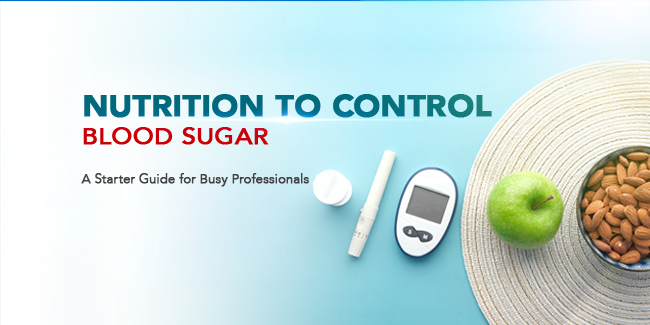Nutrition to Control Blood Sugar: A Starter Guide for Busy Professionals
Why Blood Sugar Control Matters for Professionals
Managing blood sugar levels is essential – not just for people with diabetes, but for anyone who wants sustained energy, mental clarity, and long-term metabolic health. For busy professionals juggling deadlines, travel, and long hours, unstable blood glucose can lead to fatigue, irritability, brain fog, and increased risk of type 2 diabetes or heart disease.
When you consume food, your body converts it into glucose, which fuels your cells. Frequent spikes and crashes in blood glucose can disrupt productivity, cravings, and mood. Maintaining stable blood sugar supports consistent energy, sharper focus, and improved well-being.
Smart Nutrition Strategies to Stabilize Blood Sugar
Here are evidence-based, practical nutrition strategies (keywords in bold) you can apply even on hectic days:
-
Choose High-Fiber Carbohydrates
Fiber slows the absorption of glucose, helping blunt sharp blood sugar spikes. Prioritize whole grains (brown rice, quinoa, oats), legumes (beans, lentils), vegetables, and whole fruits (with peel where edible).
Quick tip: Replace white bread or refined carbs with wholegrain options to support glycemic control.
-
Prioritize Lean Protein with Each Meal
Protein slows digestion, reduces cravings, and stabilizes post-meal blood sugar surges. Include lean protein sources like chicken breast, fish, eggs, tofu, Greek yogurt, or low-fat dairy.
Quick tip: Keep a stash of nuts or plain yogurt at your desk for a midday protein-rich snack.
-
Incorporate Healthy Fats
Not all fat is “bad” – omega3 fatty acids and monounsaturated fats support hormone balance, heart health, and insulin sensitivity. Use avocados, olive oil, nuts, seeds, fatty fish (salmon, mackerel).
Quick tip: Swap creamy dressings with a drizzle of olive oil + lemon juice on salads.
-
Use Portion Control & Balanced Meals
Too-large servings – especially of starchy or refined carbs – can overwhelm your system. Use the “plate method”:
- ½ plate non-starchy vegetables
- ¼ plate lean protein
- ¼ plate whole grains or complex carbs
-
Avoid Sugary Drinks & Added Sugars
Sodas, energy drinks, fruit juices, and other sweetened beverages cause rapid glucose surges. Stick to water, sparkling water, or unsweetened herbal teas. If flavour is desired, add lemon slices, cucumber, or mint.
Quick tip: Always carry a refillable water bottle to deter sugary beverage cravings.
-
Don’t Skip Meals — Keep Fuel Consistent
Skipping meals may lead to blood sugar dips followed by overeating or sugar crashes later. Consistency matters.
Quick tip: Prepare simple grab-and-go options: overnight oats, smoothies with protein and fibre, or a small balanced salad you can eat in the car.
Lifestyle Hacks That Amplify Nutrition Efforts
To complement your nutrition efforts and further support blood glucose regulation, try incorporating these habits:
- Move regularly: Even a 10-minute walk after eating boosts glucose uptake by muscles.
- Manage stress: High stress elevates cortisol, which can raise blood sugar. Use breathing techniques, short breaks, or mindfulness during work.
- Prioritize sleep: Poor sleep impairs insulin sensitivity and worsens glycemic control. Aim for 7–8 hours nightly.
- Mind your carbohydrate quality: Focus more on lowglycemic index (GI) carbs (GI ≤ 55) and avoid refined/high-GI foods.
- Consider carb counting or glycemic load awareness: For those who want precision, tracking grams of carbohydrate per meal (or using glycemic load) helps predict blood sugar impact.
The Takeaway
You don’t need a massive overhaul — small, consistent changes can significantly improve blood sugar control. Focus on:
- Eating high-fibre carbs + lean protein + healthy fats
- Proper portion sizes
- Avoiding sugary drinks
- Never skipping meals
- Supporting habits like movement, stress management, and sleep
For busy professionals, the goal is steady energy, mental clarity, and long-term metabolic health -without complicated nutrition plans.
Written by Sayuru, Content Writer at Durdans Hospital













